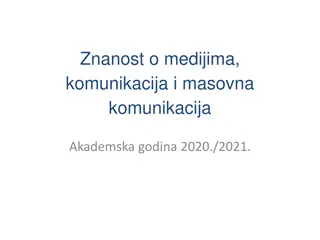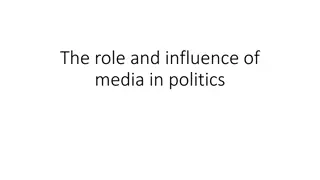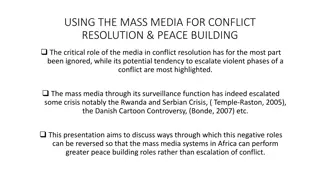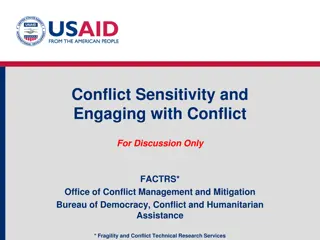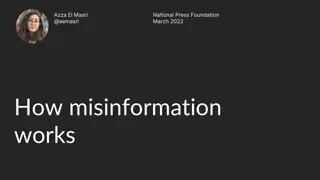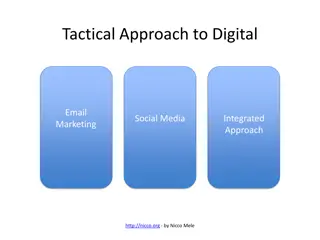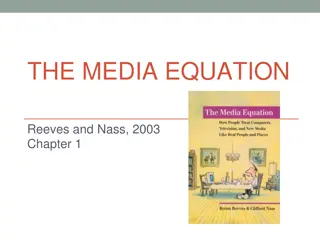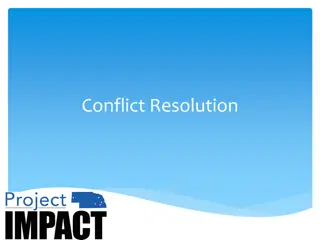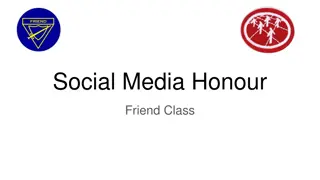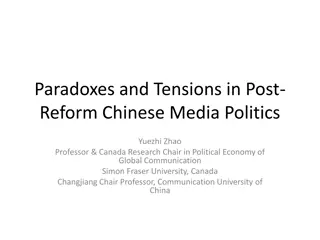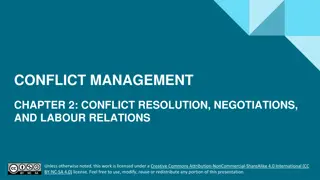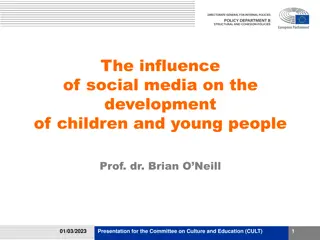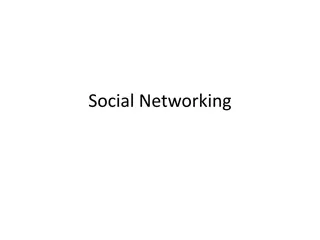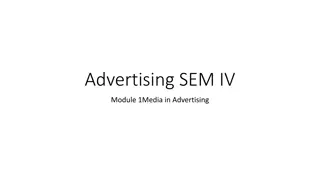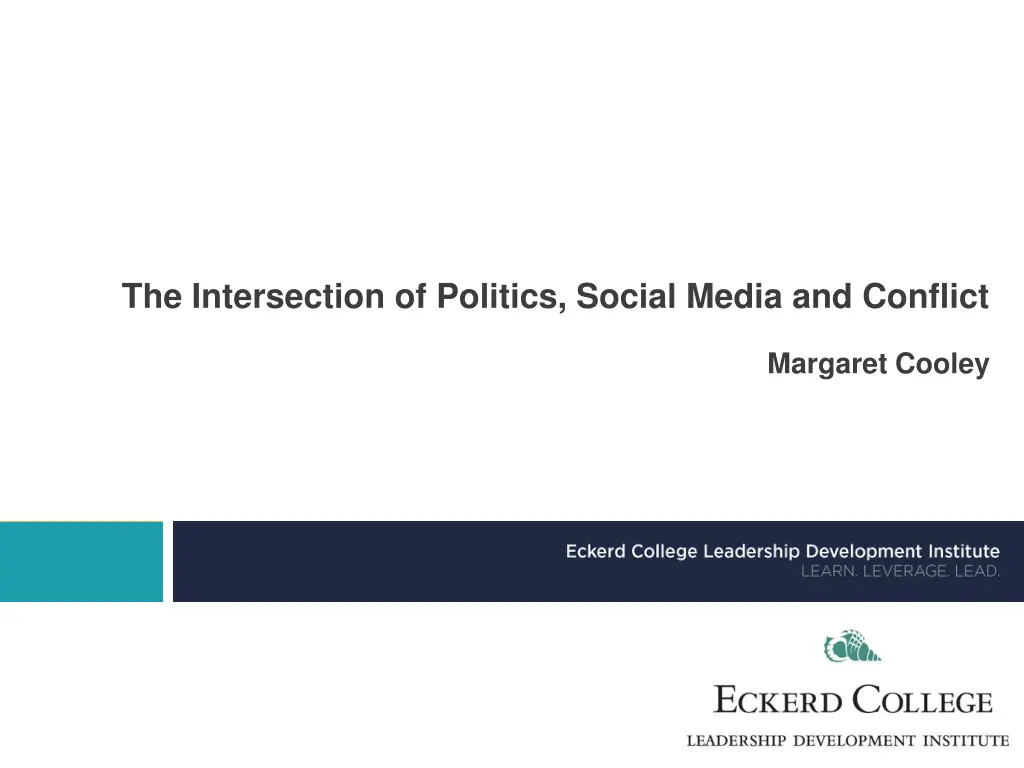
Understanding the Intersection of Politics and Social Media
Explore the complexities of politics in today's society, including the role of social media and conflict. Delve into the impact of differing political views on relationships and decision-making in the digital age. Reflect on the importance of constructive dialogue and thoughtful engagement in discussions. Should you post about politics on social media? Consider the implications and decide how to navigate this challenging terrain.
Download Presentation

Please find below an Image/Link to download the presentation.
The content on the website is provided AS IS for your information and personal use only. It may not be sold, licensed, or shared on other websites without obtaining consent from the author. If you encounter any issues during the download, it is possible that the publisher has removed the file from their server.
You are allowed to download the files provided on this website for personal or commercial use, subject to the condition that they are used lawfully. All files are the property of their respective owners.
The content on the website is provided AS IS for your information and personal use only. It may not be sold, licensed, or shared on other websites without obtaining consent from the author.
E N D
Presentation Transcript
The Intersection of Politics, Social Media and Conflict Margaret Cooley
Our Approach Reflect on how we think about politics Explore the decision to post or not to post Review some recent research Answer the question: Should we talk or not? Engage in a perspective taking activity Identify constructive responses
How Would You Describe Politics? Politics is the art of looking for trouble, finding it everywhere, diagnosing it incorrectly and applying the wrong remedies. Politics is the debate or conflict among individuals or parties having or hoping to achieve power. Politics is the struggle among people with differing visions of the common good.
Behave: The Biology of Humans at our Best and Worst Robert Sapolski asks: Do political orientations arise more from specific political issues or deep implicit factors? Political orientations have remarkably little to do with specific political issues. Implicit factors are biases in judgment resulting from subtle cognitive processes often operating at a level below conscious awareness. For example: In a study of 1100 judicial rulings, prisoners were granted parole at a 60% rate when judges had recently eaten and at about a 0% rate just before judges ate. Justice may be blind, but she is sure sensitive to her stomach gurgling!
Poll Questions How many of you have important family members with whom you differ politically to a significant degree? How many of you have close friends with whom you differ politically to a significant degree?
To Post or Not to Post? Please jot down all of the reasons you can imagine for deciding not to initiate or respond to political posts on Facebook. Please jot down all of the reasons you can imagine for believing that political posts on Facebook are extremely important.
To Post or Not to Post? Facebook is meant to foster connection rather than devisiveness. It s difficult to have a dialogue on Facebook, egos get entrenched as other people are watching, and information that is posted is not likely to change someone s mind. There are extremely disturbing problems in this country and in this world. It is my duty to use this platform to have my voice heard. Silence is dangerous! I believe that you get the country you fight for, and there are far more important things to post than vacation photos.
Neuroscientists at the Brain and Creativity Institute at USC Neuroscientists compared whether and how much people changed their minds on political and nonpolitical issues when provided with counter- evidence. The political issues were topics such as military spending, gun control, tax cuts for the wealthy, etc. The nonpolitical issues were topics such as multivitamins, secondhand smoke, whether modern people are more informed, etc. Professor Jonas Kaplan used MRIs to scan the brains of 40 liberal participants, and the brain chemistry was observed as his team tried to sway their positions.
Neuroscientists at the Brain and Creativity Institute at USC Political statements and nonpolitical statements activate different parts of the brain. When people s political beliefs are challenged, their brains become active in areas (detected through brain imaging) that govern personal identity and emotional responses to threats. Subjects were more flexible when asked to reconsider their belief in nonpolitical statements, but when it came to reconsidering their political beliefs, they were not willing to budge. Political beliefs are a part of who you are and are important to the social circle to which you belong. To consider an alternative viewpoint, you would have to consider an alternative versionof yourself.
Jeremy Frimer, University of Winnipeg Psychologist Journal of Experimental and Social Psychology 2000 participants were presented with two options. They could either read and answer questions about an political opinion they agreed with or read the opposing viewpoint. 63% chose to read about their own view even though the financial reward was slightly larger for choosing the opposite point of view. The authors of the study call this Motivated Ignorance. In another study, they tested people s knowledge of the other side. Largely, the participants were unfamiliar with the other viewpoints. New work shows that stoking curiosity could be a means to break the partisan thinking.
Dan Kahan, Yale Professor of Law and Psychology Kahan used a tool to measure science curiosity and found that it was distributed across demographic groups and political leanings. So yes, there are, indeed, both curious liberals and curious conservatives! The more curious that people are, the more immune they are to the power of partisan thinking and the more likely they are to seek out information that contradicts their group s beliefs.
Robb Willer, Stanford Professor of Sociology Most of us ground our political arguments in our own moral values. It is more persuasive to reframe the argument to connect a political position to your target audience s moral values. The Moral Foundations Theory may be one path to deal with our highly polarized world.
Robb Willer, Stanford Professor of Sociology Researchers suggest that Democrats may value fairness, equality and protection of the vulnerable while Republicans may value patriotism, respect for authority and moral purity. So, it is likely to be more persuasive to reframe the argument towards the moral views of the other. For example, Liberals may be more likely to support high levels of military spending if they are told that through the military, the disadvantaged can achieve equal standing and overcome the challenges of poverty and inequality. It is less effective to argue that increased military spending will ensure that the US is the greatest nation. Conservatives may be more likely to support kneeling during the National Anthem in protest, if they are told that our founding fathers were deeply concerned with protecting our rights to social protest.
This Article Wont Change Your Mind: The Problem with Facts Julie Beck There are facts and there are beliefs, and there are some things you want so badly to believe that they are facts to you. Motivated Reasoning means that people seek out agreeable information and remember it more easily. They avoid, devalue, forget or argue against information that contradicts their beliefs. In 2016, Oxford Dictionaries chose post-truth as its word of the year. It was defined as relating to or denoting circumstances in which objective facts are less influential in shaping public opinion than appeals to emotion and personal belief The scale of the internet allows you to obtain evidence for any claim you want to believe.
To Talk or Not to Talk? What would you recommend to others (and yourself) about family political differences? Why?
Perspective Taking Activity Pick a partner and decide who is person A and who is person B. Person A and person B, you will first choose an issue (not a particular politician) about which you feel strongly. You will then each have two minutes to prepare to argue the opposite side of the issue. Please jot down your arguments for the other point of view. Person A, you will have one minute to present your argument. Please notice how you feel as you do so and how easy or difficult it is for you to make the argument. Switch to Person B and repeat the process. I will manage the time.
Constructive Responses Be curious. Own the fact that you have personal biases. Have the difficult conversations. Celeste Headlee (journalist, author, speaker) says, I am not so na ve as to believe conversations can solve the world s problems, but I can say with confidence that not having those conversations makes the problems significantly worse. Don t try to educate any one. The purpose of listening is not to endorse but to understand. Amaryllis Fox, former CIA officer says: The only way to disarm your enemy is to listen to them. If you re brave enough to really listen to their story, you can see that, more often than not, you might have made some of the same choices if you d lived their life instead of yours. Show respect. Most people truly believe that their candidate or their policies will make the world a better place. Practice seeing people with whom you disagree as people who are trying to achieve a better result.
Listening If a person speaks and no one listens, is that really communication? With cell phones, laptops, and notebooks, how much listening is really going on? William Ury
Digital connections are skyrocketing Yet empathy is down 40%
Empathy Decreasing: Why? Growing emphasis on self Video games numbing people to the pain of others Social Media vs Friends IRL Reality TV Hypercompetitive atmosphere Inflated expectations of success
Lets Start a Listening Revolution! Not talk shows but listen shows Notpeace talks but peace listens


